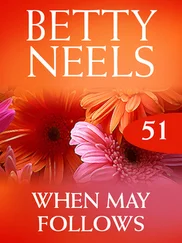‘Daisy Gillard,’ said Daisy clearly. ‘You told my father that you had a Georgian wine cooler. May I see it, please?’
Heer Friske found his voice and spoke in strongly accented English. ‘You are here to buy it? You are capable?’
‘My father thinks so.’
He got up slowly and led her further into the shop, where the wine cooler stood on top of a solid table. He didn’t say anything, but stood back while she examined it. It was a splendid specimen, in good condition and genuine. ‘How much?’ asked Daisy.
His price was too high, but she had expected that. It took half an hour’s bargaining over several cups of coffee before they reached an amount which pleased them both. Daisy made out a Eurocheque, said that she would return on the following day to make arrangements to convey the unwieldy cooler to the station, and took her leave, pleased with herself and happy to have the rest of the day in which to do exactly what she liked.
By the time she got back to the hotel in the late afternoon she was tired but content; she had crammed the Rijksmuseum, two churches, Anne Frank’s house and a canal trip into her time, stopping only for a brief while to consume a kaas broodje and a cup of coffee.
At dinner she told her companions where she had been and they nodded approval, pointing out that the evening was when she should take the opportunity of walking to the Leidesplein to get a glimpse of the brightly lighted square with its cafés and hotels and cheerful crowds.
Daisy, a cock-a-hoop over her successful day, decided that she would do just that. It was no distance, and although it was a chilly night, with a sparkling frost, there was a moon and plenty of people around. She found her way to the Leidesplein easily enough, had a cup of coffee at a street stall while she watched the evening crowds, and then started back to the hotel.
However, somehow she mistook her way, and, turning round to check where she had come from, took unguarded steps backwards and fell into a canal.
She came to the surface of the icy water and her first thought was thankfulness that she hadn’t had anything valuable about her person; the second was a flash of panic. The water wasn’t just cold, it smelled awful—and tasted worse.There were probably rats… She opened her mouth and bawled for help and swam, very hampered by her clothes, to the canal bank. Slippery stones, too steep for her to scramble up. She bawled again, and, miracle of miracles, a firm hand caught her shoulder while a second grabbed her other arm, almost wrenching it from its socket. She was heaved onto the street with no more ado.
‘Not hurt?’ asked her rescuer.
‘Ugh,’ said Daisy, and was thankfully sick, half kneeling on the cobbles.
‘Only very wet and—er, strong-smelling,’ added a voice she knew.
He bent and set her on her feet. ‘Come with me and we’ll get you cleaned up.’
‘Mr der Huizma,’ said Daisy. ‘Oh, it would be you, wouldn’t it?’ she added wildly. It was nice to have been rescued, but why couldn’t it have been by a stranger? Why did it have to be someone who, if he’d remembered her at all, would have thought of her as a quiet, well-mannered girl with a knowledge of antiques and a liking for walks by the sea. Now it would be as a silly, careless fool.
‘Indeed it is I.’ He had her by the arm. ‘Across this bridge is the hospital where I work. They will soon have you clean and dry again.You didn’t lose anything in the canal?’
‘No. I didn’t have more than a few gulden with me. I only turned round to see where I was…’
‘Of course,’ agreed Mr der Huizma gravely, ‘a perfectly natural thing to do. This way.’
The hospital was indeed close by. He led her, squelching and dripping, into the casualty entrance and handed her over to a large bony woman who clucked sympathetically and led Daisy away before she had time to utter a word of thanks to Mr der Huizma. Her clothes were taken from her, she was put under a hot shower, her hair was washed and she was given injections. The sister, who spoke good English, smiled at her. ‘Rats,’ she said, plunging in the needle. ‘A precaution.’
She was given hot coffee, wrapped in a hospital gown several sizes too large and a thick blanket, and sat on a chair in one of the cubicles. She felt quite restored in her person, but her mind was in a fine jumble. She had no clothes; her own had been taken away, but even if they were washed they would never be dry enough, and how was she to get back to the hotel? No one had asked her that yet. She rubbed her long mousy hair dry and began to worry.
The cubicle curtains were parted and Sister appeared; looming beside her was Mr der Huizma. Daisy stared up at them from the depths of her blanket.
‘My clothes? If I could have…?’
Sister interrupted her in a kind, forceful voice. ‘Mr der Huizma will take you back to your hotel and explain what has happened. Perhaps you would be good enough to bring back the blanket, slippers and gown in the morning?’
‘Oh! Well, thank you. I’m a great nuisance, I’m afraid. Shall I take my clothes with me?’
‘No, no. They are being washed and disinfected. You may collect them in the morning.’
Daisy avoided the doctor’s eye. ‘I’m sorry I’ve been so tiresome. I’m very grateful…’
Sister smiled. ‘It is a common happening that people—and cars—should fall in the canals. You will come to no harm, I think.’
Mr der Huizma spoke. ‘Shall we go, Miss Gillard?’
So Daisy, much hampered by the blanket and the too-large slippers, trotted beside him, out of the hospital, and was shoved neatly into the dark grey Rolls Royce outside.
It was a short drive, and beyond expressing the polite hope that she would enjoy the rest of her stay in Amsterdam, he had nothing to say. And as for Daisy, it seemed to her it was hardly the occasion for casual conversation.
At the hotel he ushered her across the narrow pavement and into the foyer, where he engaged the proprietor in a brief conversation, not a word of which Daisy could understand. But presently he turned to her, expressed the hope that she was none the worse for her ducking, and bade her goodbye.
Daisy, at a disadvantage because of the blanket, thanked him again, untangled a hand from the blanket and offered it. His large, cool hand felt strangely comforting.
The next morning, her normal, neatly dressed self, not a hair out of place, she took a taxi to the hospital, handed over the blanket, the gown and the slippers in exchange for her own clothes, and made a short speech of thanks to Sister, who nodded and smiled, wished her a happy day and a safe return home and warned her to be careful.
There was no sign of Mr der Huizma, and there was no reason why there should have been; he was obviously a senior member of his profession who probably only went to Casualty when his skills were required. All the same, Daisy lingered for as long as possible in the hope of seeing him.
Mijnheer Friske had the wine cooler packed up ready for her to take. She arranged to collect it that evening, when she went to get her train to the Hoek. It would be unwieldy, but no heavier than a big suitcase, and there would be porters and her father had said that he would see that she was met at Harwich. She assured Heer Friske that she would be back in good time, checked the contents of her handbag—ticket, passport, money and all the impedimenta necessary for her journey—and set off to spend the rest of the day window shopping, exploring the city and buying one or two small gifts.
Being a girl of common sense, she left her clothes, including those the hospital had returned to her, with the kindly Heer Friske, taking only her coat with her which she presently left at a dry cleaners to be collected later. Everything was going very smoothly, and she intended to enjoy her day.
Читать дальше












